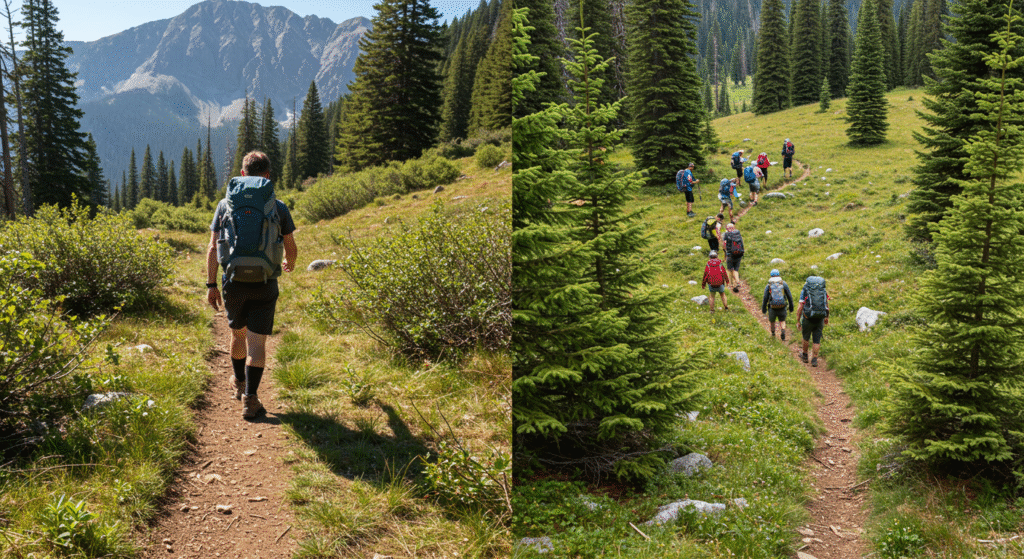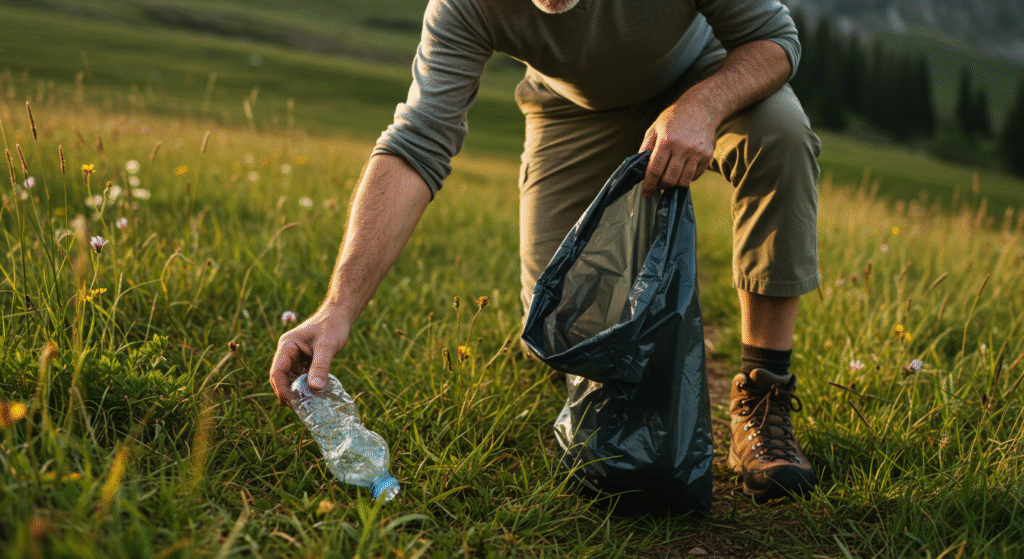Elevate Your Wilderness Travel Ethics to Expert Levels Beyond Leave No Trace
As more people head into the backcountry, the pressure on fragile ecosystems has never been greater. Most outdoor adventurers understand the importance of Leave No Trace (LNT), but what happens after you’ve mastered those seven principles? For those who want to truly protect the wild places they love, it’s time to dive deeper into the unwritten codes and next-level practices that define advanced wilderness ethics.
This isn’t just about doing less harm. It’s about becoming a long-term steward of the land, a conscious traveler who not only treads lightly but also actively contributes to the resilience of wild places. From route discipline to wildlife interactions, this guide explores what elite explorers know, and practice, on every trek.
Why Advanced Ethics Matter in Today’s Wildlands
The explosion of outdoor recreation has created new ethical challenges. Trails are widening, wildlife is shifting behaviors, and some areas face permanent ecological damage. As a seasoned adventurer, your role evolves from following LNT to influencing and educating others, and making proactive decisions that minimize not just your footprint, but your presence.
Ethical travel in wilderness areas now includes confronting subtle forms of impact, like habituating animals or unknowingly trampling fragile biomes. Advanced wilderness ethics address these nuances with precision and intentionality.
Route Discipline
In high-use areas, deviating from established trails can create social paths that fragment vegetation and accelerate erosion. But even in low-traffic zones, route discipline matters. Skilled hikers plan their movements with environmental sensitivity:
- Stick to durable surfaces, even off-trail
- Avoid shortcuts, switchback cutting, or trail braiding
- Limit group spread. Walk in single file through sensitive areas
- Scout campsites based on impact minimization, not just comfort
Route discipline also includes understanding seasonal trail conditions and rerouting when necessary to avoid damaging wet or vulnerable terrain.

Wildlife Desensitization: Invisible But Lasting Harm
Close encounters with wildlife might thrill the average hiker, but for experts, they raise red flags. Animals exposed to human presence too frequently can become desensitized often leading to behavioral shifts, increased danger, or dependency.
To counter this:
- Observe wildlife from a distance (using optics, not proximity)
- Avoid lingering in high-interaction zones like berry patches or water sources
- Store food with rigorous discipline to prevent scent habituation
- Educate fellow hikers when they unintentionally attract animals
Practicing these habits protects wildlife and maintains the natural balance of predator-prey and migratory behaviors.

Long-Term Ecological Stewardship
True backcountry ethics extend beyond your hike. Advanced wilderness ethics involve active stewardship, such as:
- Supporting local conservation groups and trail associations
- Participating in trail maintenance and habitat restoration
- Donating to or volunteering with land trusts
- Advocating for responsible policy and sustainable recreation management
Some hikers even adopt a section of trail or contribute to citizen science initiatives by reporting observations on flora, fauna, and trail conditions.
5 Advanced Ethics Every Backcountry Explorer Should Know
- Ghost Camping Avoidance – Always dismantle trace campsites, including fire rings and stone furniture, even if someone else left them.
- Sound Pollution Awareness – Keep music, shouting, and drone use to a minimum. Silence is part of the landscape.
- High-Impact Timing – Travel during off-peak seasons to reduce strain on popular areas.
- Educate Quietly – Set the example without confrontation. Invite curiosity, not defensiveness.
- Support Indigenous Land Practices – Acknowledge the history and stewardship of Native lands; follow local cultural guidelines.
Off-Trail Travel, Groups, and High-Use Areas
When venturing off-trail, each step counts more. Alpine tundra, cryptobiotic soils, and wetlands are especially vulnerable. Using a compass or GPS doesn’t just aid navigation, it helps avoid backtracking and compounding impact.
Group travel adds complexity. More people means more risk of noise, trail widening, and campsite overuse. Establish clear ethical guidelines for your group:
- Delegate an environmental lead for each trip
- Discuss impact strategies in planning sessions
- Choose smaller group sizes when exploring fragile areas
In popular zones, advanced ethics mean choosing less-visited alternatives or timing your trip to avoid peak crowding.
What Seasoned Adventurers Do Differently
The most experienced backcountry travelers often go unnoticed, not because they lack presence, but because their presence blends into the wild.
They:
- Know when to say no to a summit or destination for the sake of the environment
- Carry out trash left by others without complaint
- Rewild disturbed areas by disguising impact
- Plan extra time for ethical decisions (e.g., changing routes, moving camp)
- Lead by quiet example, showing that real skill includes real responsibility

From Visitor to Caretaker
Advanced wilderness ethics aren’t about perfection. They’re about evolving from a respectful visitor to a proactive caretaker. As wildlands face increasing pressure, those who understand the deeper codes of travel become their fiercest protectors.
By embracing these advanced practices, you not only reduce harm, you elevate your connection to the landscapes you love. This is the next chapter in your wilderness journey: one where every choice echoes your commitment to the land.
